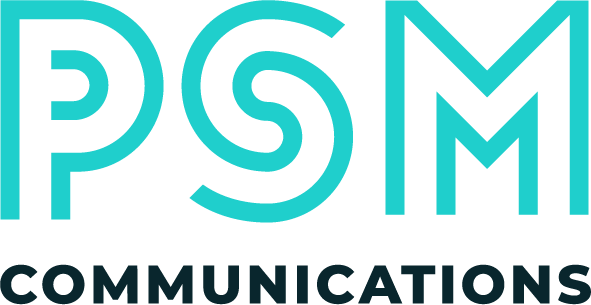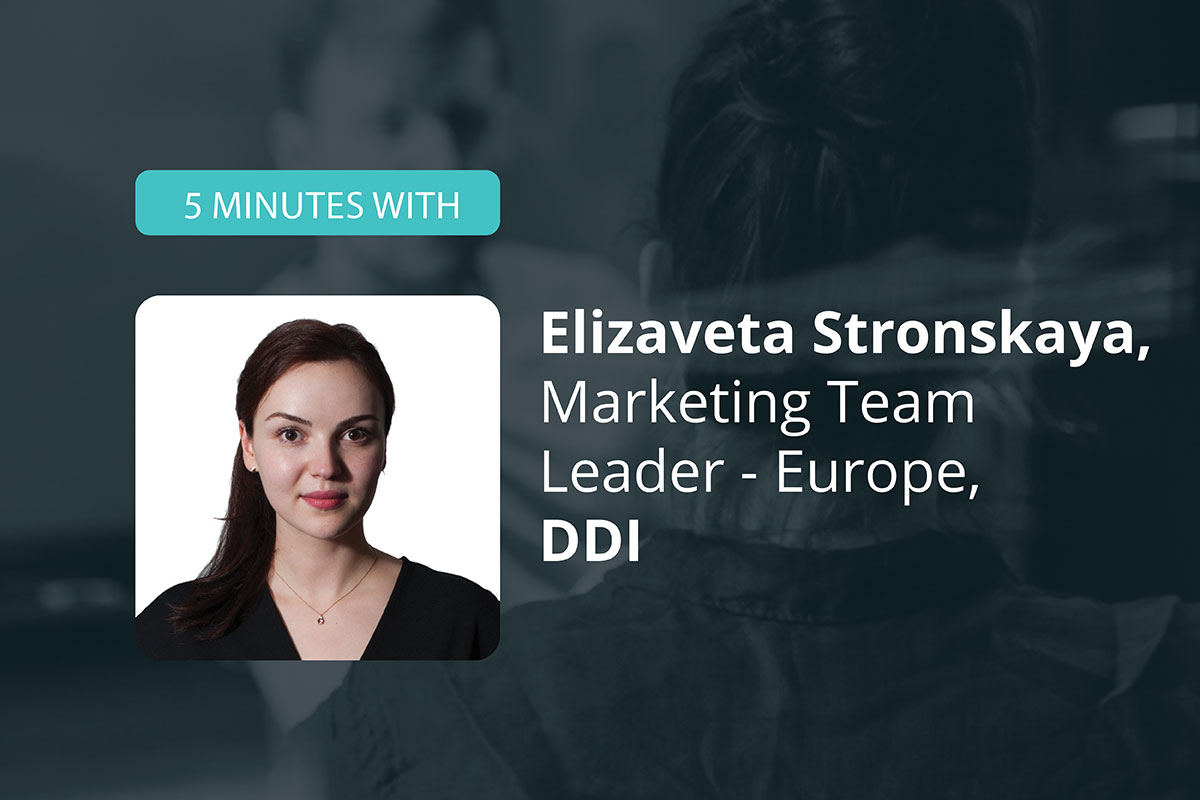This month I’m delighted to be speaking to Elizaveta Stronskaya, Marketing Team Leader for Europe at DDI, a global leadership consulting firm who for over 50 years has helped organisations hire, promote, and develop exceptional leaders.
Here’s my 5 minutes with…
What is your marketing background?
I think the roots of my interest and passion go back to high school and university experiences. During the last 3 years of high school my class had a focus on multimedia technologies and I took courses on graphics editing, static and motion design, 3d modelling, animation, video production and others. Later at the university I volunteered as a community manager at the Faculty’s branding student project, which involved social media management, copywriting, events organisation and multiple initiatives coordination. Over the years my job roles have been gradually evolving and changing, so at different times of my career I have been hands-on involved in pretty much all sides of the marketing mix from offline events, CRM management, content and thought leadership creation, email marketing and social media, through to multi-channel campaign management and ABM. I think of myself as a generalist – and invest time and effort where the business needs me most.
What does your role at DDI involve?
I’m responsible for DDI’s marketing in the European region where I have the key goals of purposefully increasing brand recognition and generating demand to support our business growth. We’ve recently completed the main phase of our global website redesign (the Website work is never done, is it?), and right now I am heavily involved in driving ABM in Europe and implementing multi-touch campaigns for our clients and prospects. It’s ultimately a balance of executing global and local strategies in our region and staying by the side of our clients to continue building better leaders for a better future.
You’ve worked in professional services throughout your career what have been some of the biggest changes for you in professional services marketing in recent years?
It has to be the evolution of the martech stack that head led us all to increase our ability to really understand the needs of our clients at different stages of their buying journeys and add value at each of those stages. It’s not about martech only, of course, but I’m fascinated by the level of insight and growth that it helps achieve for marketing and sales when these teams get together to help clients solve their challenges. There is one other change that has shown fantastic impact over the recent years: the evolution of regional marketing, sales and consulting/delivery relationships into a truly strong partnership. Better together, for sure!
Your role at DDI extends across Europe, how do you ensure brand consistency in each of your markets?
I follow the rhetoric that everyone in the company is a brand ambassador, and marketing should act as brand guardians who provide timely support and encouragement to others.
We have a wonderful, well-integrated European team and globally a very strong organisational culture. I follow the rhetoric that everyone in the company is a brand ambassador, and marketing should act as brand guardians who provide timely support and encouragement to others. It boils down to the experience that we create for our clients and their leaders at every touchpoint and how we help them navigate their leadership challenges. We live and breathe our brand every day when we work together with our clients, so staying true to this path and paying attention to local cultural aspects in the process is important.
For you, what’s the key to success in marketing internationally in professional services?
The key to successfully marketing internationally boils down to strong collaboration with local teams and working out a tried and tested marketing mix for the local go-to-market model.
A deep understanding of clients and the challenges that you help them solve with your services, that is the north star. But in a global company you might have a different product and solution mix and varying prospect profiles in different markets, so for me the key to successfully marketing internationally boils down to strong collaboration with local teams and working out a tried and tested marketing mix for the local go-to-market model. Meeting the prospects and clients where they need you and adding value and insight throughout the client lifecycle in each of the markets.
The relationship between global/corporate and local/regional marketing can sometimes get strained, what’s the key to a successful relationship?
This is a tough one! Any relationship needs work – for example, the time and effort put into learning who your counterparts are and what they are trying to achieve. This connection is an opportunity not only to gain understanding of what to expect (there’s nothing worse than to learn about something that impacts you once it’s already out there, right?!) but also to provide feedback and share your own objectives and plans, and influence the longer term. Regional teams might be surprised by how much corporate has to offer, and global marketing can benefit from the innovations and some tactics that have worked well at a local level, as well as from learning more about those markets themselves. It’s also critical to stay mindful and sensitive to what’s happening within the teams and different parts of the business at any particular point of time.
What advice could you offer any local marketers at firms who are struggling with the global/corporate relationship?
I’d recommend learning more about the goals of the corporate marketing function and seeing where they meet your own. Establish a cadence of recurring meetings – even if it’s just once a quarter, it’s still a way to stay connected, build long-term relationships and gain insight into the global priorities which can help a lot with shaping the local agenda and future planning, too. But also, don’t be afraid to share! Be it knowledge, feedback, skills – you are part of one company in this hyper-connected global world.
How do you measure the impact of your marketing operations across Europe?
As the saying goes, you can’t manage what you don’t measure. We have success metrics for campaigns, tactics and channels, of course, but ultimately the impact that gets judged by the business is the number of quality leads and conversations generated in the prospect accounts and how they translate into sales opportunities.
If you were told you could only report on 3 key metrics, what would they be?
- Website visitors and their behaviour – the website is the face of the company and its ability to achieve set goals and move the prospect down the funnel is critical.
- Number of engaged client and prospect contacts in the marketing database – are we able to attract the right contacts and does our content resonate and answer their needs.
- Marketing impacted opportunity value – I mean, how could I not?
What’s the best piece of marketing advice you’ve ever been given?
When someone gifts you their feedback (about your behaviour or your projects), no matter positive or negative, you say “thank you” and take it. Do what you want with it, but never argue or negotiate with your counterpart.
It’s rather life advice from one of my former leaders, but I think it relates to marketing just as well: Feedback is a gift. When someone gifts you their feedback (about your behaviour or your projects), no matter positive or negative, you say “thank you” and take it. Do what you want with it, but never argue or negotiate with your counterpart. Especially in marketing we always seek for how things can be improved, that way you can keep learning and growing as a professional.


No comment